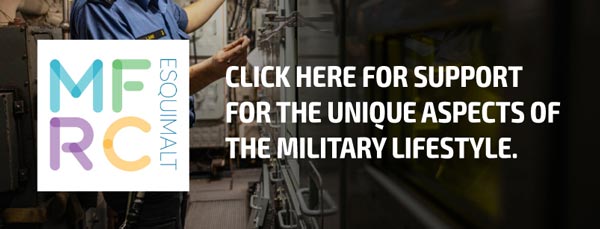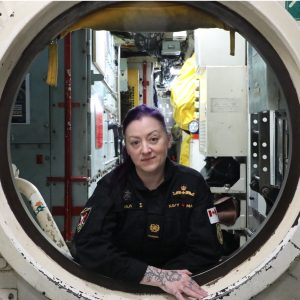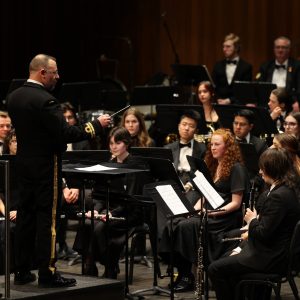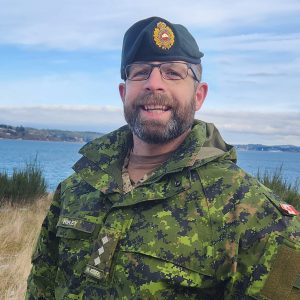Kateryna Bandura
Lookout Editor
—
True or false: if you spot an oil spill, you are responsible for reporting it to the Environmental Protection Office and waiting for them to arrive to clean it up.
False.
While Marine Systems Engineers and deck departments fuel the ships, everyone is responsible for acting during a spill.
“You spilled it, you’re cleaning it up,” says Lyle Fairley, a Marine Environmental Emergency Response Officer from the Port Operations and Emergency Services Branch (POESB). “If you spot a spill, you report it and you do everything you can to clean it up while waiting for us to arrive.”
Oil spill clean-up tactics were among multiple discussions during the yearly Marine Spill Response refresher course, which Fairley ran with Lorraine Crinkley, Branch Environment Officer & HAZMAT Coordinator.

Marine Spill Response course participants prepare for a beach clean-up scenario as part of the hands-on portion of the course.
The unique instructional course for sailors and civilians combines classroom experience with hands-on training.
“A lot of training was starting to happen before COVID hit,” Fairley said. “Now that the Navy needs to get many new people prepared, we’re back up and running.”
The course comprises theory and practice. The morning lecture covers the basics, such as oil constitution and behaviour, safety factors during a spill, environmental considerations and how to clean up. In the afternoon, members play with a spill kit and participate in a spill scenario, practicing their theory.
“People play with the kits and observe how diesel or paint behaves in a contained environment, and then learn to clean it up. It’s like a big sandbox for adults,” Fairley says.
The personnel are trained to respond to minor leaks and spills onboard ships, and many course participants have previous spill clean-up experience. Petty Officer Second Class (PO2) Erich Pertl took this year’s course to refresh the skills he gained during his 23.5 years of sea time.
“The equipment has gotten more advanced and user-friendly,” PO2 Pertl said. “Before you needed subsurface equipment to run everything, now you just need a small motor that can run a whole system.”
PO2 Pertl, a Bosun with the Naval Fleet School (Pacific), says the course is essential for learning to minimize environmental exposure and mitigate long-term effects on wildlife sanctuaries.
His sentiment is echoed by Sailor First Class (S1) Travis Steevs.
“Anybody who works in this environment has a right to protect it,” S1 Steevs says. “All those ships and submarines have oils, fuels and lubricants, so it’s good to know how to clean it up.”
S1 Steevs, a Stoker at Canadian Submarine Force HQ, says the course is perfect for Marine Systems Engineers and other oil and liquid subject matter experts. He also took this course as a refresher.
Fairley said the goal of the course is to make sure people know how to deploy spill kits and have things rolling by the time his team arrives at the scene. He has been overseeing the course since 2014.
“I just really enjoy this,” he says. “The majority of our day is mocking up ‘what if’ scenarios. I like solving problems. And that’s what spill response is about.”
The Marine Spill Response course is step one in preparations for a significant exercise mandated by Environment Canada next spring.
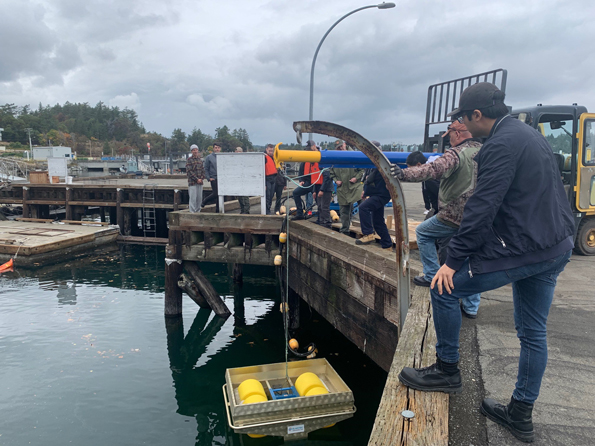
An oleophilic drum skimmer is laid in water as the participants engage in an oil spill scenario during the Marine Spill Response course.





